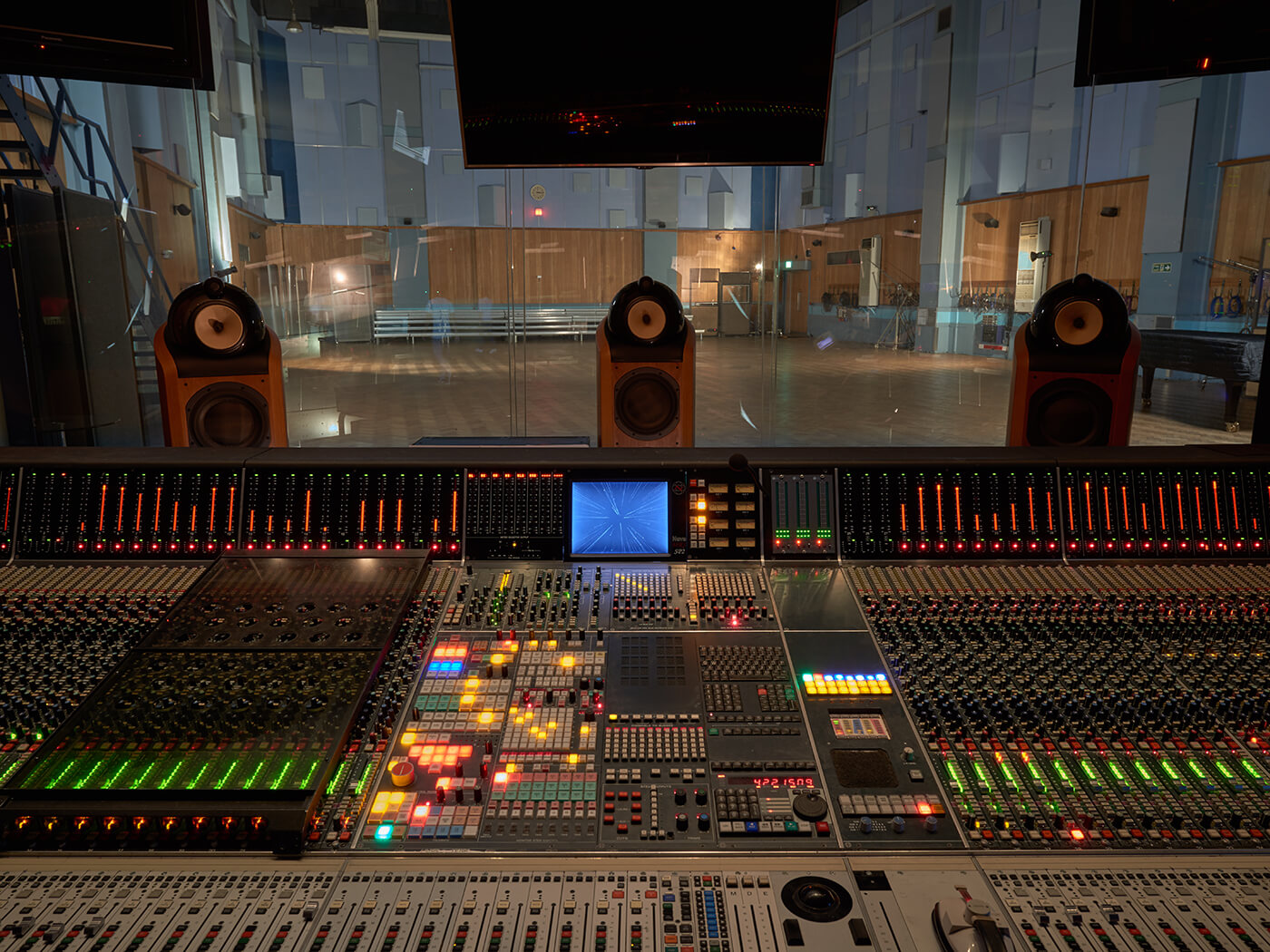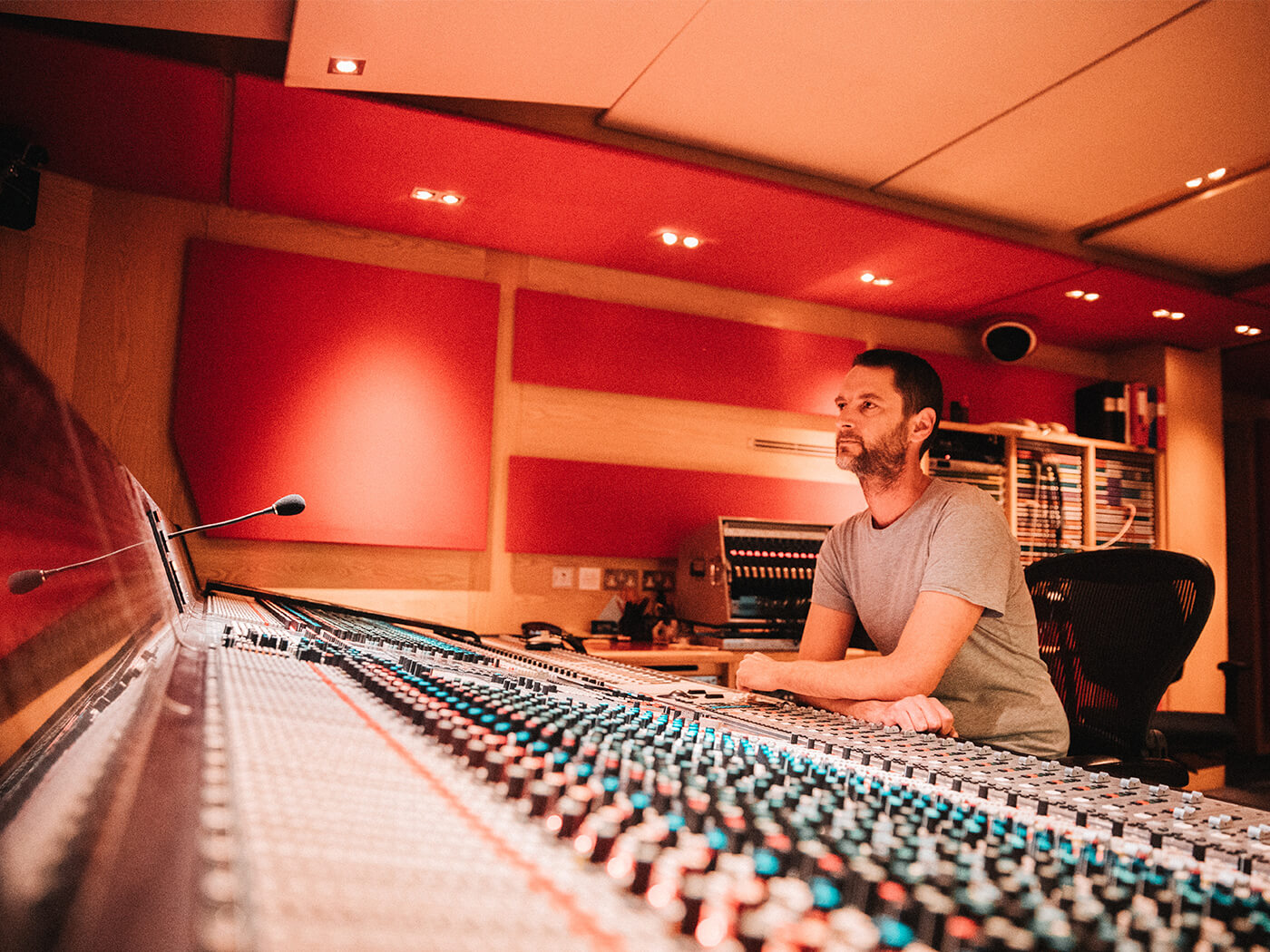Ask Abbey Road: Chris Bolster on monitoring and investing in good gear
Chris Bolster, in-house engineer at Abbey Road Studios, talks monitoring, the importance of investing in good gear and more.

We’re proud to partner with Abbey Road Studios to present Ask Abbey Road, a brand-new series where you get to put your pressing production questions to the experts at what is almost without question the world’s most famous studio.
In our first-ever instalment of the series, we got Abbey Road’s Chris Bolster to share a handful of mixing tips and advice on tracking orchestra and kick drums. For our third and final part with the audio engineer, Bolster digs deep into monitoring and investing in good gear.
Rohan Puntambekar asks: At what level do you monitor when producing?
Chris Bolster: I feel monitoring is a personal preference. These days, I try to keep levels to a moderate setting. After years of high levels of sound, then seeing that impact on both artists’ and staff’s hearing, well, it just pays to be sensible. When recording, I will probably be inclined to turn it up a little just to see/feel how the low-end frequencies are working, then drop back down before losing any perspective due to hearing threshold shifts.
When you’re tracking, you need to listen out for any unwanted noise or defects in the recording. I think that you’re trying to be more assertive when recording, to make sure that what you’re capturing is clean and precise before moving on. Headphones are super useful, but sadly not inclusive of others around you, so sometimes they’re not ideal. The studio is a shared working environment with conversations that need to be heard, so as the engineer, you need to be helpful and respectful of this.
When mixing, it’s easier to monitor at low levels, as you’re not listening out as much, and I prefer to work that way, not feeling bombarded all day long. Ears are muscles, and they do get fatigued. Also, there are most likely going to be moments where you will need to work at high levels, so, you need to be sympathetic to others’ requirements and protect your hearing and those around you, when possible. My moulded earplugs are the best thing that I have ever bought and useful in monitoring-madness moments.
MusicTech: Are those moments when you’re with a client or producer who wants to turn things up really loud in the studio?
CB: Yes, or if you are recording guitars or alike in the control room and need a little more impact, it’s always fun to crank it and see what happens.

Matthew Hatfield asks: What’s the most important piece of gear a bedroom/home-studio producer could invest in to take their productions to a professional-studio level?
CB: That’s such a difficult question. There are just so many different elements needed to compete with a pro studio. This is why studios are there, so you don’t have to be purchasing, updating or maintaining gear continually to compete. Someone’s done all the hard work for you.
But, yes. A good mic, a good preamp, compressor, EQ, effects are all useful tools, not to mention the computer, converters, software and monitoring system! It’s all about budget and requirements for what you are looking to record.
Also, there’s the problem of needing different tools for different jobs. So a few multipurpose items are going to be your best bet. Or, before you know it, your bedroom/home studio will be a fully loaded professional studio with all the bells and whistles.
Michel Breuker asks: Where do you keep all the recordings that have been made in previous decades?
CB: We personally don’t keep the recordings. Within my time with EMI and now Universal, they have had extensive tape-storage facilities. These are very secure and controlled environments where both analogue and digital masters are stored, archived and preserved. It’s rather impressive, but sadly there are probably thousands of great recordings that will no longer exist in some of their previous formats.
Future use probably wouldn’t have been at the forefront of people’s minds back then, let alone how fast technology was going to change and progress, or the possibility of degradation of magnetic-tape solutions. Mostly, the responsible way to maintain possession and look after such assets falls upon the label, management or artist.
Next up on Ask Abbey Road, we have the studio’s Senior Recording Engineer Andrew Dudman to field your questions.